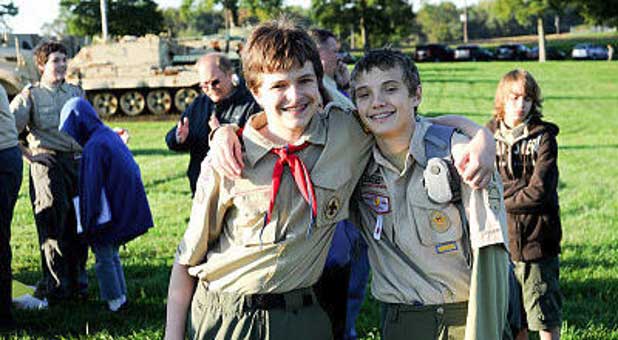I was 13 years old and the beautiful Pamela Rivers (not her real name) was the apple of my eye. The Boy Scout meetings were just a block away from her house on Pine Valley Avenue in Cincinnati, Ohio. The way I thought of myself and my relationship with this African-American beauty was shaped by three factors: 1) my family values; 2) my church’s teaching; and 3) the norms of the guys in my Boy Scout troop. This was two years before the assassination of Dr. King, when terrible race riots shook our city.
A multiracial Boy Scout troop flourished there in South Avondale—a tough neighborhood—providing a model for racial reconciliation, citizenship and national service to a community that desperately needed it. I can even remember my participation in the Cub Scouts as early as the 4th grade, and learning the following words:
The Cub Scout Promise
“I promise to do my best, to do my duty to God and my country, to help other people, and to obey the Cub Scout Code (now the Law of the Pack).”
For me, these words gave tangibility to my faith and a framework for the manners that my mother and father taught me. For decades, the Boy Scouts of America (BSA) have heroically trained Christian kids to be solid citizens. Most folks don’t realize that nearly 70 percent of the Boy Scout troops in the nation are connected with churches.
The BSA has also withstood attacks from homosexual activists. Now, it is “discussing possibility of removing the national membership restriction regarding sexual orientation.” On Feb. 6; its board postponed making a definitive decision on this issue.
Why Now?
Gay rights activists may be threatening to expose historic improprieties within the BSA. I also believe that behind the scenes, “secret files” dug up in previous legal actions have created an urgency for these groups to attempt to affect the Supreme Court’s sense of “societal swing”—just before the Supreme Court rules on the issue of gay marriage. You can bet the timing is connected.
The Consequences of Opening the BSA to Gay Scouts
A departure from their long-held policies would be devastating to an organization that has prided itself on the development of character in boys. In fact, according to a recent Gallup survey, only 42 percent of Americans support changing the policy to allow homosexual scout leaders.
Traditional-family Boy Scout advocates must remain vocal. It is crucial that they hear from those who have gone through the program, past and potential donors, and those who stand with them and their current policy regarding homosexuality. Please continue to call the Boy Scouts of America at (972) 580-2000 and tell them that you want to see the organization stand firm in its moral values and respect the right of parents to discuss these sexual topics with their children.
Bishop Harry R. Jackson Jr. is the senior pastor of Hope Christian Church, a 3,000-member congregation in the Washington, D.C., area. He is also founder and president of High Impact Leadership Coalition, which exists to protect the moral compass of America and be an agent of healing to our nation by educating and empowering churches, community and political leaders.














































